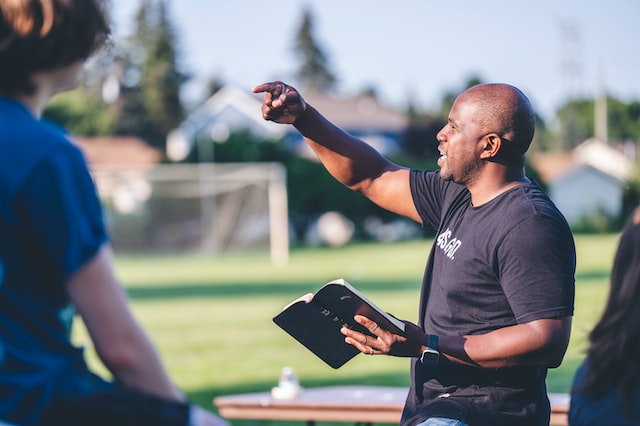No activity is more exciting for a new Christian than studying the Bible. The Bible is the Word of God and contains all the truths and principles that a Christian should know to live a Christ-glorifying life. But whether you’ve just started following Jesus recently or have been a Christian for a long time now, you will find helpful insights in this article on how to study the Bible. Here, we present 11 tips for studying the Word of God effectively.
Pick a translation that is simple to grasp and is appropriate for your reading ability.
One of the most crucial initial steps in your Bible study journey is picking the correct translation. Choosing a translation that suits your reading ability as a beginner is vital. Some of the most recommended translations for beginners include The New Living Translation (NLT), the English Standard Version (ESV), and the New International Version (NIV). To choose which translation speaks to you the most, read a few different ones. Moreover, you’d want to choose a study Bible with additional study notes, maps, and other resources to help you grasp the text better. You will position yourself for success by choosing the accurate translation as you study God’s Word.
Set aside a regular time and place for studying.

Establishing a regular habit when learning how to study the Bible requires setting aside a time and location. Choose a time that works best for you and stick to it, whether in the morning before you start your day, during your lunch break, or in the evening before bed. Having a designated study space, such as a quiet room at home or a nearby library, can also reduce distractions and improve focus. It will be easier for you to develop the habit of consistently engaging with God’s Word and a better connection to its message if you follow a routine and place for studying.
Invest in a study Bible, concordance, and commentary.
Investing in a good study Bible, concordance, and commentary can aid your comprehension of Scripture by giving you more details and background knowledge. A study Bible can include study notes, maps, and other valuable resources to help you better comprehend the text. On the other hand, a commentary can give the text’s historical, cultural, and literary context. At the same time, a concordance can assist you in locating verses and sections on specific subjects.
Pray and ask the Lord for wisdom and knowledge before each session.
The Bible is God’s authorship, and he is the only one who can explain the exact meaning of the text. Before each study session, pray to God and ask him for wisdom and knowledge. This is crucial when you’re learning how to study the Bible. Your heart will become more receptive, and you will have the desire to learn if you begin your study time with prayer. Then, as you read, pray for the Holy Spirit’s guidance. Ask for help in understanding and applying the message to your life. You will also have a clearer mind free of distractions if you always begin your study in prayer.
Ask questions, make connections, and take notes as you read.

Read actively by asking questions, making connections, and taking notes. Engage with the literature actively by asking questions and drawing parallels to your own experiences and life rather than just passively reading it. Making notes and underlining significant passages can both aid in memory retention and future reference. By applying these strategies, you will improve your comprehension of the book and discover fresh perspectives on God’s message for you.
Take into account the text’s historical and cultural setting.
You’ve probably heard of reading the Bible in context and its importance in how to study the Bible. In simpler terms, it means considering the historical and cultural setting of the text you are reading. You can better comprehend the text’s relevance and meaning by being aware of the context in which it was written. Each book of the Bible has a specific setting, audience, and historical period. You will get important insights and context for your own interpretation of the text by being familiar with the cultural practices, viewpoints, and values of the people who first received the message.
Join a Bible study group for discussion and accountability.

In Ecclesiastes, Solomon wrote that two are better than one. This principle applies to studying the Bible. Joining a study group will give you an opportunity to discuss your learnings with other believers. It will also offer support and accountability. Many Christians are eager the first time they start their study but eventually lose motivation. One reason is that they don’t have an accountability group. Moreover, joining a study group can offer chances for conversation and help you learn from others who are on a similar path. Finally, it can help you learn fresh interpretations of the Scripture while developing your relationship with other Christians.
Recall the verses by heart by memorizing them.
While studying the Bible is more than just filling your head with information, memorization plays an important role in the process. By memorizing important passages from the text, you will have a higher chance of retaining information and having it ready for reference and reflection. You don’t need to memorize a huge chunk of the passage. Just select portions that are meaningful to you personally or that you wish to utilize as a source of inspiration or direction in your everyday life.
Be familiar with the different literary genres found in the Bible.
One of the most important things you need to understand when learning how to study the Bible is that it is not to be always taken literally. Different books in the Bible use different literary forms. Apocalypse, prophesy, and epistle are the three major literary genres in the Bible, but you will also find narratives, prophecies, and even poetry. You will be able to appropriately analyze the text and comprehend its message more fully if you are familiar with these literary forms. For instance, you will better understand the meaning of a psalm if you know that it was poetry or the contents of Paul’s writings if you recognize that the epistles are a form of ancient communication.
To better comprehend the content, read the commentaries and participate in the discussion.

Commentaries are never to be taken as an authoritative source of biblical interpretation. Nevertheless, they can be excellent tools to help you understand certain passages in the Bible. They are written by scholars who offer additional interpretations and insights into the text. Commentaries frequently include historical, cultural, and literary context, which can aid in your comprehension of the goal and meaning of a passage. They can also offer alternate readings of difficult passages and provide guidance on issues or queries you might have.
Apply what you learn to your daily life.
Studying and learning without application is useless. The ultimate goal of studying God’s word is not simply to acquire information and become knowledgeable but to allow the message to transform you. After each study session, spend some time thinking about the lessons you’ve learned and how you may use them in your everyday life. This could mean changing your actions, attitudes, or behaviors, as well as acting on a particular message or piece of advice you have gleaned from the text. It is only by putting what you have learned into practice that you will personally experience the transforming power of the Word of God!
Check out some of our other posts!







